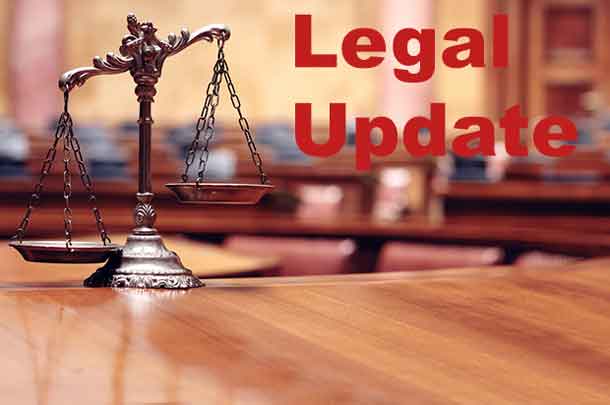Are you puzzled by a legal issue? Do you think it may have a bearing on an aspect of your life but need to understand what, exactly, it is? Legal issues can affect items such as our incomes, non-profit formation and structure, filing taxes, joining together in marriage and committing spiritual ceremonies. Understanding the nuances surrounding the definition of ‘legal issue’ means knowing more about the way complex laws apply to any circumstance or situation.
Understanding and addressing legal issues promptly can prevent them from escalating. If you find yourself in a legal predicament, it’s wise to consult with professionals, such as a car accident lawyer San Diego, to guide you through the process.
This article aims to explain more precisely: just what is a legal issue?
Definition of a legal issue – what it is and why it matters
Legal issues refer to any matter that may arise in the context of the law, including disputes, conflicts, and violations of laws or regulations. It is essential to understand what constitutes a legal issue because it helps individuals and organizations to navigate the legal system and protect their rights. Legal issues can have significant consequences, both financially and personally, and can range from simple contract disputes to complex constitutional issues. Therefore, everyone, whether an individual or a business, should be aware of their legal rights and obligations to avoid legal complications. Knowing what a legal issue is and when it arises could make the difference between avoiding a lawsuit and facing one.
Types of Legal Issues – contract disputes, criminal law, constitutional issues
From contract disputes to criminal law and constitutional issues, the legal landscape is full of diverse and complex challenges. While contract disputes can arise between any two parties, criminal law involves criminal offenses such as theft, drug offenses, and assault. In such cases, criminal lawyers provide essential expertise and representation to navigate these serious charges. Constitutional issues, on the other hand, involve questions of civil liberties, such as the right to free speech or the right to bear arms. Each of these legal issues presents its unique set of challenges, requiring specialized knowledge, experience, and expertise. Whether you are an individual involved in a contract dispute, a defendant facing criminal charges, or an advocate working on constitutional issues, navigating the legal system can be overwhelming. However, with the right legal counsel and a clear understanding of your rights and responsibilities, you can face any legal challenge with confidence.
How to Identify Legal Issues – signs to look out for
Identifying legal issues can often seem daunting, but with a little knowledge and awareness of the signs to look out for, it can be much easier to spot them before they become larger problems. One of the most important indications of a potential legal issue is a lack of documentation – whether it be incomplete contracts or missing employee files, these gaps can often lead to conflicts in the future. Additionally, pay attention to any warning signs from employees, customers, or suppliers – concerns raised may be indicative of issues that require legal attention. Finally, be aware of any inconsistencies in your business practices or company policies – these can also be red flags for potential legal issues. By keeping an eye out for these signs and taking action early on, you can help prevent legal issues from developing into major hurdles for your business.
Common Causes of Legal Issues – negligence, intentional and negligent acts, breach of contract
Legal issues can arise in a variety of situations, ranging from professional malpractice to business disputes. Some of the most common causes of such issues include negligence, intentional and negligent acts, and breach of contract. Negligence occurs when an individual, business or organization fails to take reasonable steps or care to prevent injury or harm to others. intentional and negligent acts are deliberate actions that cause harm, while breach of contract refers to situations where parties fail to meet their contractual obligations. Understanding these common causes of legal issues can help you take steps to prevent them and ensure that your rights are protected in case they arise.
How to Resolve Legal Issues – alternative dispute resolution techniques such as negotiation or mediation
No one wants to find themselves in a legal battle, but sometimes it’s unavoidable. Whether it’s a dispute over a contract or an issue with a neighbor, legal issues can be stressful and time-consuming. However, there are alternative dispute resolution techniques available that can save you from the headache of a full-blown court case. Negotiation and mediation are two effective methods that allow parties to come to an agreement without going to court. These techniques also tend to be less costly and more efficient, allowing both parties to save time and money in the long run. By exploring these options, individuals can resolve their legal issues in a peaceful and satisfactory manner.
Steps to Take Before Contacting an Attorney – research the laws and regulations applicable to your case
Before contacting an attorney, it is important to take certain steps in order to ensure a successful outcome to your case. One of the most crucial steps to undertake is to research the laws and regulations that are applicable to your situation. Understanding the legal framework that surrounds your case can be invaluable in helping you make informed decisions down the road. By doing your own research, you can approach your attorney with a better grasp of the issues at hand, allowing them to provide you with more tailored Legal Services. This can save you time, money, and stress in the long run, making it an essential first step for anyone seeking legal assistance.
Legal issues are very serious matters that necessitate prompt attention and action. It is important to understand what a legal issue is and the various types of legal issues in order to identify them. Although there are alternative dispute resolution techniques like negotiation or mediation, in some cases only involving a qualified attorney may do the trick for successful outcomes.
This can save you time, money, and stress in the long run, making it an essential first step for anyone seeking legal assistance. If you can’t afford legal services and can’t find someone willing to word pro-bono, contact LoanMart for a simple financing option,







